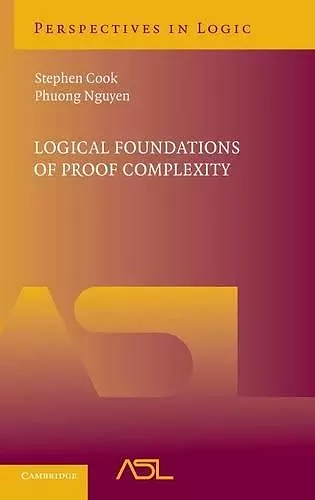Logical Foundations of Proof Complexity
Stephen Cook author Phuong Nguyen author
Format:Hardback
Publisher:Cambridge University Press
Published:25th Jan '10
Currently unavailable, and unfortunately no date known when it will be back
This hardback is available in another edition too:
- Paperback£60.00(9781107694118)

A treatise on bounded arithmetic and propositional proof complexity by the leader in the field.
This book treats bounded arithmetic and propositional proof complexity from the point of view of computational complexity. The first seven chapters include the necessary logical background for the material and are suitable for a graduate course. The result is a uniform treatment of many systems in the literature.This book treats bounded arithmetic and propositional proof complexity from the point of view of computational complexity. The first seven chapters include the necessary logical background for the material and are suitable for a graduate course. Associated with each of many complexity classes are both a two-sorted predicate calculus theory, with induction restricted to concepts in the class, and a propositional proof system. The complexity classes range from AC0 for the weakest theory up to the polynomial hierarchy. Each bounded theorem in a theory translates into a family of (quantified) propositional tautologies with polynomial size proofs in the corresponding proof system. The theory proves the soundness of the associated proof system. The result is a uniform treatment of many systems in the literature, including Buss's theories for the polynomial hierarchy and many disparate systems for complexity classes such as AC0, AC0(m), TC0, NC1, L, NL, NC, and P.
'The book under review is a comprehensive introduction to bounded arithmetic … While the book is primarily aimed at students and researchers with background in theoretical computer science, its prerequisites in computational complexity are rather mild and are summarized in the Appendix, thus the book should be easily accessible to logicians and mathematicians coming from a different background. Some familiarity with logic will help the reader, but in this respect the book is more or less self-contained, the relevant bits of proof theory and model theory are developed in the first chapters in detail.' Zentralblatt MATH
ISBN: 9780521517294
Dimensions: 234mm x 156mm x 32mm
Weight: 940g
496 pages